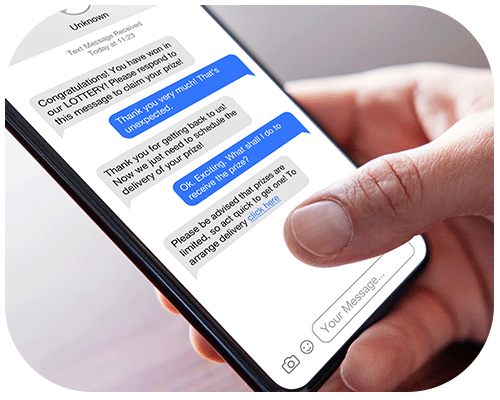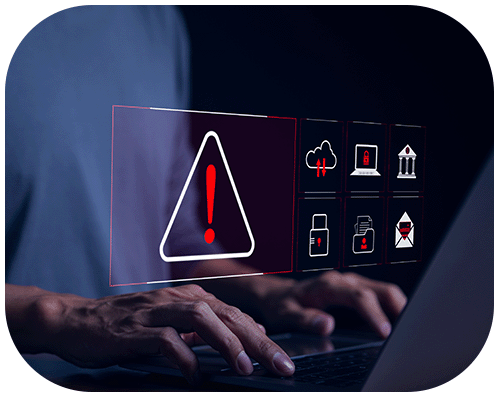Protecting and informing consumers is an important part of the work we do every day at the Minnesota Department of Commerce. The information in this section will help you make informed financial decisions, avoid pitfalls and scams, and protect your personal financial information.
Follow these tips and share this advice with family and friends - especially older Minnesotans and vulnerable adults who are at most risk for financial fraud.

Phone Calls or Text Messaging Scams
Common scams involve things like winning a lottery or sweepstakes, lost Amazon or UPS packages, a compromised bank account, unpaid parking tickets or tolls, or offers for high-return investments.
How to Protect Yourself
- Always double-check the phone number of someone who is claims to be calling you;
- Don't answer calls from numbers you don't recognize!
- Don’t respond to a text message from a number or person you don’t recognize.
 Internet Scams
Internet Scams
- Romance scams: Fraudsters starting an online “relationship” with you and making promises of a future with you while asking you to send them money.
- Fake websites: Fraudulent websites designed to look like official government or shopping websites.
- Imposter scams: Fraudsters pretending to me someone you know or a government official.
For advice on how to spot romance scammers, fake websites, or imposter scams, check out the resources available on the Federal Trade Commission website. “Phishing” or “spoof” emails are fraudulent messages pretending to be from your bank or other organizations. These emails will often ask you to click a link and enter your account details.
 How to Protect Yourself
How to Protect Yourself
- If the email is coming from your bank, call your bank first before responding. If you email is coming from another organization, such as the IRS, contact the IRS before responded to any unsolicited email.
- Always verify with the official source before clicking links, sharing information, or responding to the email.

